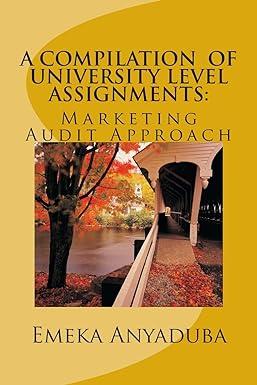Question
Snow Spray Corp. (SSC) recently filed for bankruptcy protection. The company manufactures downhill skis and reports under ASPE. With the increased popularity of such alternative
Snow Spray Corp. (SSC) recently filed for bankruptcy protection. The company manufactures downhill skis and reports under ASPE. With the increased popularity of such alternative winter sports as snowboarding and tubing, sales of skis are sagging. The company has decided to start a new line of products that focuses on the growing industry surrounding snowboarding and tubing. At present, however, the company needs interim financing to pay suppliers and its payroll. It also needs a significant amount of cash so that it can reposition itself in the marketplace. Management is planning to go to the bank with draft financial statements to discuss additional financing. The company's year end is December 31, 2016, and it is now January 15, 2017. Current interest rates for loans are 5%, but because it is in bankruptcy protection, SSC feels that it will likely have to pay at least 15% on any loan. There is concern that the bank will turn the company down. At a recent management meeting, the company decided to convert its ski manufacturing facilities into snowboard manufacturing facilities. It will no longer produce skis. Management is unsure if the company will be able to recover the cost of the ski inventory. Although the conversion will result in significant expenditures, the company feels that this is justified if SSC wants to remain a viable business. The shift in strategic positioning will not result in any layoffs, as most employees will work in the retrofitted plant. The remaining employees will be trained in the new business. The conversion to snowboard manufacturing facilities would not require selling the ski manufacturing machines, as these machines can be used to produce snowboards. The company estimates the results and cash flows from its operation of selling skis to be a $20-million loss. On December 15, 2016, the company entered into an agreement with Cashco Ltd. to sell its entire inventory in ski bindings to Cashco. Under the terms of the deal, Cashco paid $10 million cash for the inventory (its regular selling price at the time). The cost to SSC of this inventory was $6 million and so a profit of $4 million was booked pre-tax. In a separate deal, SSC agreed to buy back the inventory in January for $10,125,000. Before filing for bankruptcy protection, the company was able to buy a large shipment of snow tubes wholesale for a bargain price of $7 million from a supplier that was in financial trouble. The value of the inventory is approximately $10 million. The inventory was sitting in the SSC manufacturing facility taking up a lot of space. Because the manufacturing facility was being renovated, SSC reached an agreement with its leading competitor, Alpine Gear Ltd. (AGL). According to the contract, AGL agreed to purchase the snow tubes from SSC for $8 million, and SSC shipped the inventory on December 31 to arrive on January 5. The inventory was shipped f.o.b. shipping point. SSC normally reimburses its customers if the inventory is damaged in transit. SSC has a tentative verbal agreement that it will repurchase the snow tubes that AGL does not sell by the time the renovations are complete (in approximately six months). The buyback price will include an additional amount that will cover storage and insurance costs. Instructions
Instructions: Adopt the role of Rachel Gloverthe company controllerand discuss the financial reporting issues related to the preparation of the financial statements for the year ended December 31, 2016
Step by Step Solution
There are 3 Steps involved in it
Step: 1

Get Instant Access to Expert-Tailored Solutions
See step-by-step solutions with expert insights and AI powered tools for academic success
Step: 2

Step: 3

Ace Your Homework with AI
Get the answers you need in no time with our AI-driven, step-by-step assistance
Get Started


